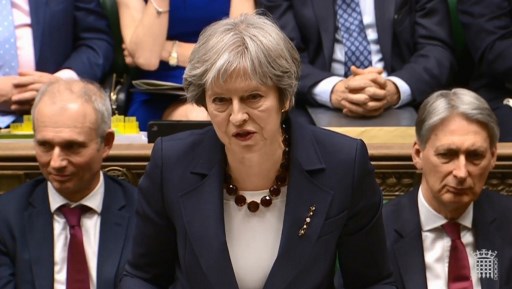
MOSCOW, Russia (AFP) — Russian media on Thursday accused British Prime Minister Theresa May of having “poisoned” relations with Moscow by announcing the expulsion of diplomats in response to the poisoning of a former double agent with a nerve agent.
“Theresa May has poisoned relations between London and Moscow,” Nezavisimaya Gazeta headlined its front-page story.
Kommersant business daily accused Britain of seeking “toxic responses.”
“The crisis in relations between Moscow and London has reached a new peak,” it said.
May “tried to accuse Russia of every sin under the Sun,” wrote popular pro-Kremlin tabloid Komsomolskaya Pravda.
Another pro-Kremlin daily, broadsheet Izvestia, wrote that Russia will respond “at least in a symmetrical way” to the expulsions, meaning it would expel the same number of diplomats.
But “Russia’s reaction could also be more wide-reaching,” it predicted, citing diplomatic sources.
“Await a response,” Izvestia headlined its story.
“A seemingly emerging warming in relations with London has turned into a long-lasting frost,” wrote popular daily Moskovsky Komsomolets.
But it predicted that “Russia can bear it all without bowing down.”
Former Russian spy Sergei Skripal and his daughter Yulia were found in a serious condition in the English city of Salisbury on March 4.
British experts say the pair were poisoned with a nerve agent which was developed by the Soviet Union during the Cold War.
May on Wednesday in parliament announced a number of moves including the expulsion of 23 diplomats and the suspension of high-level contacts with Russia.
Russia’s foreign ministry slammed the measures as an “unprecedentedly rude provocation.”
© Agence France-Presse








